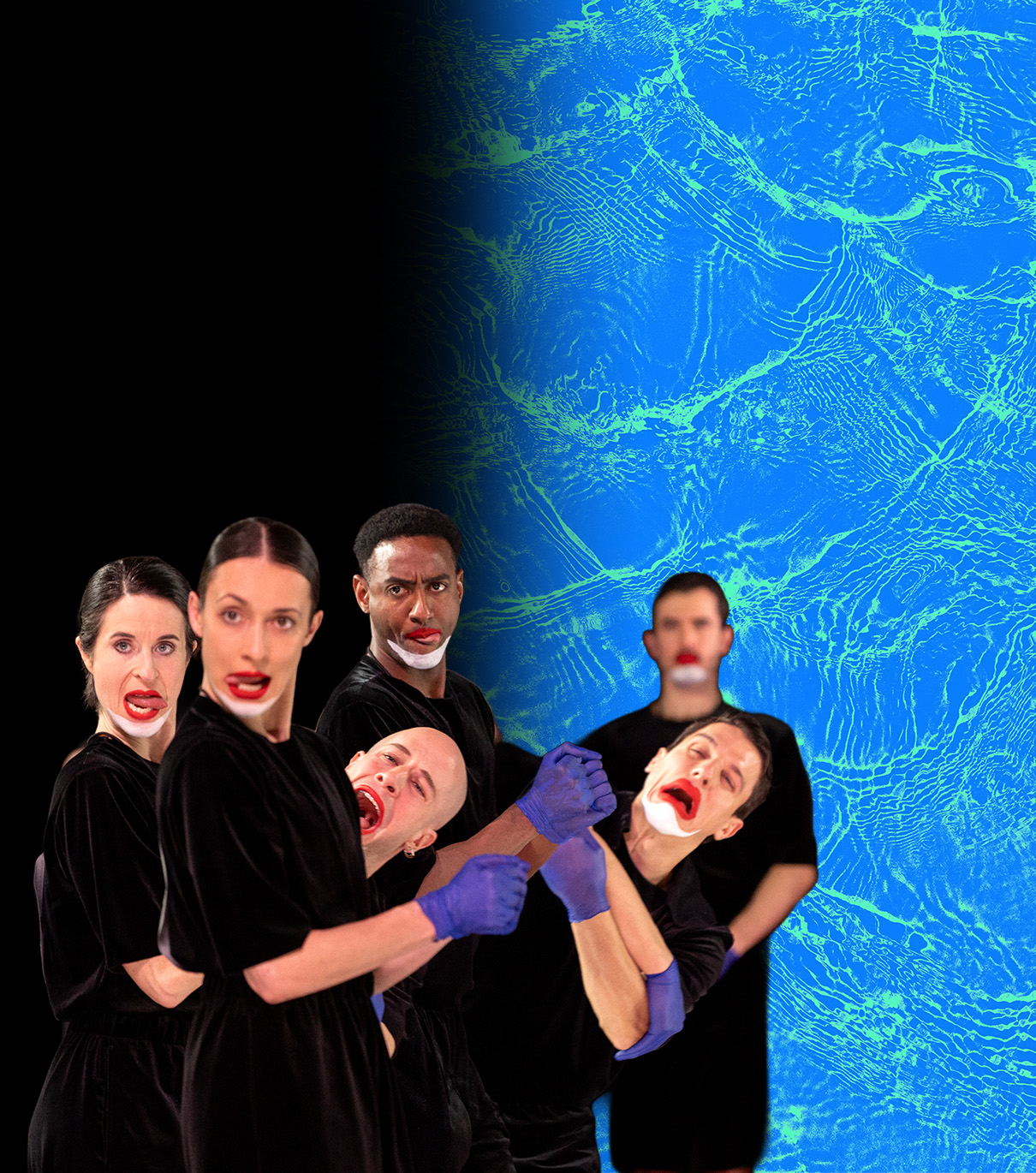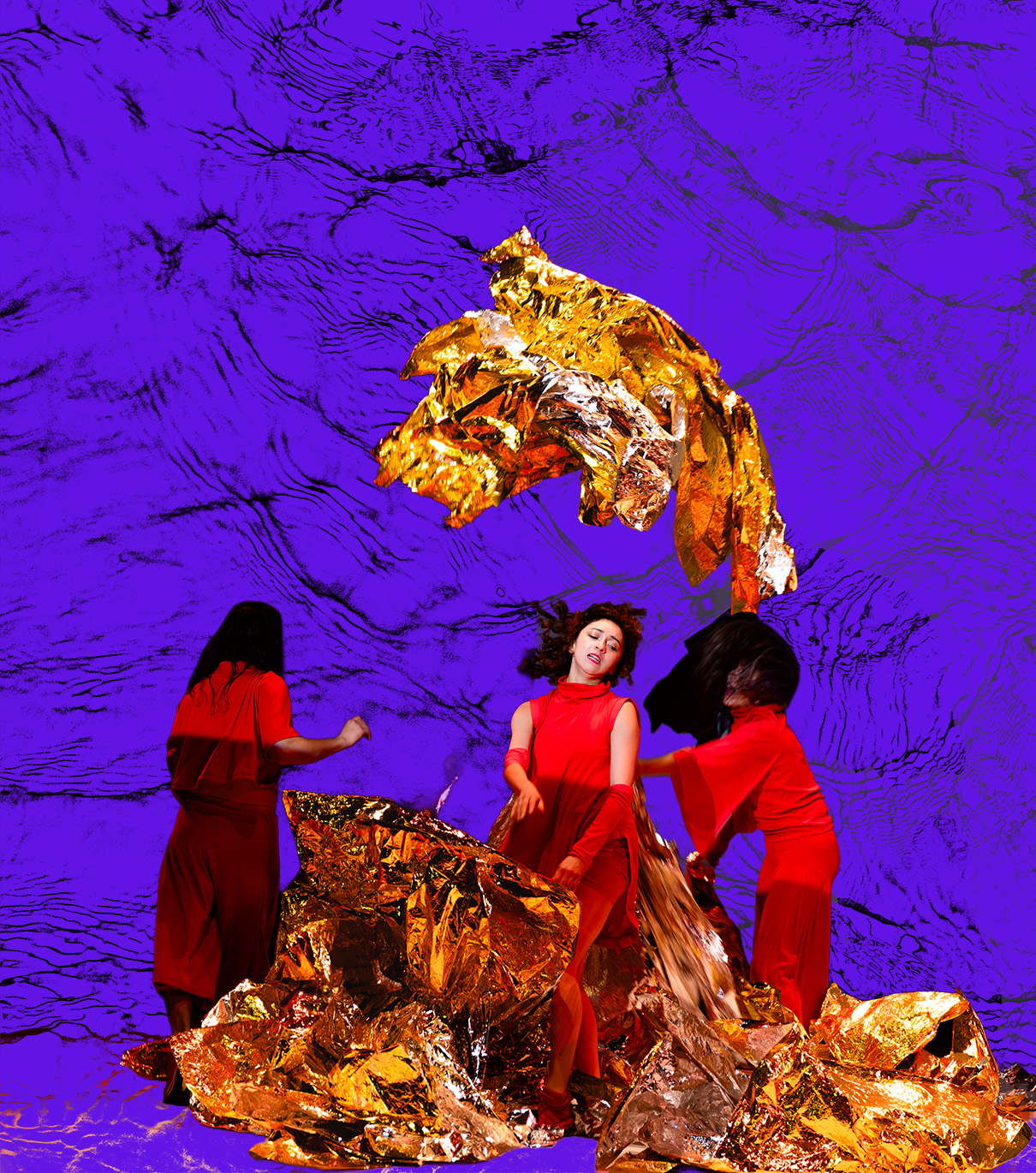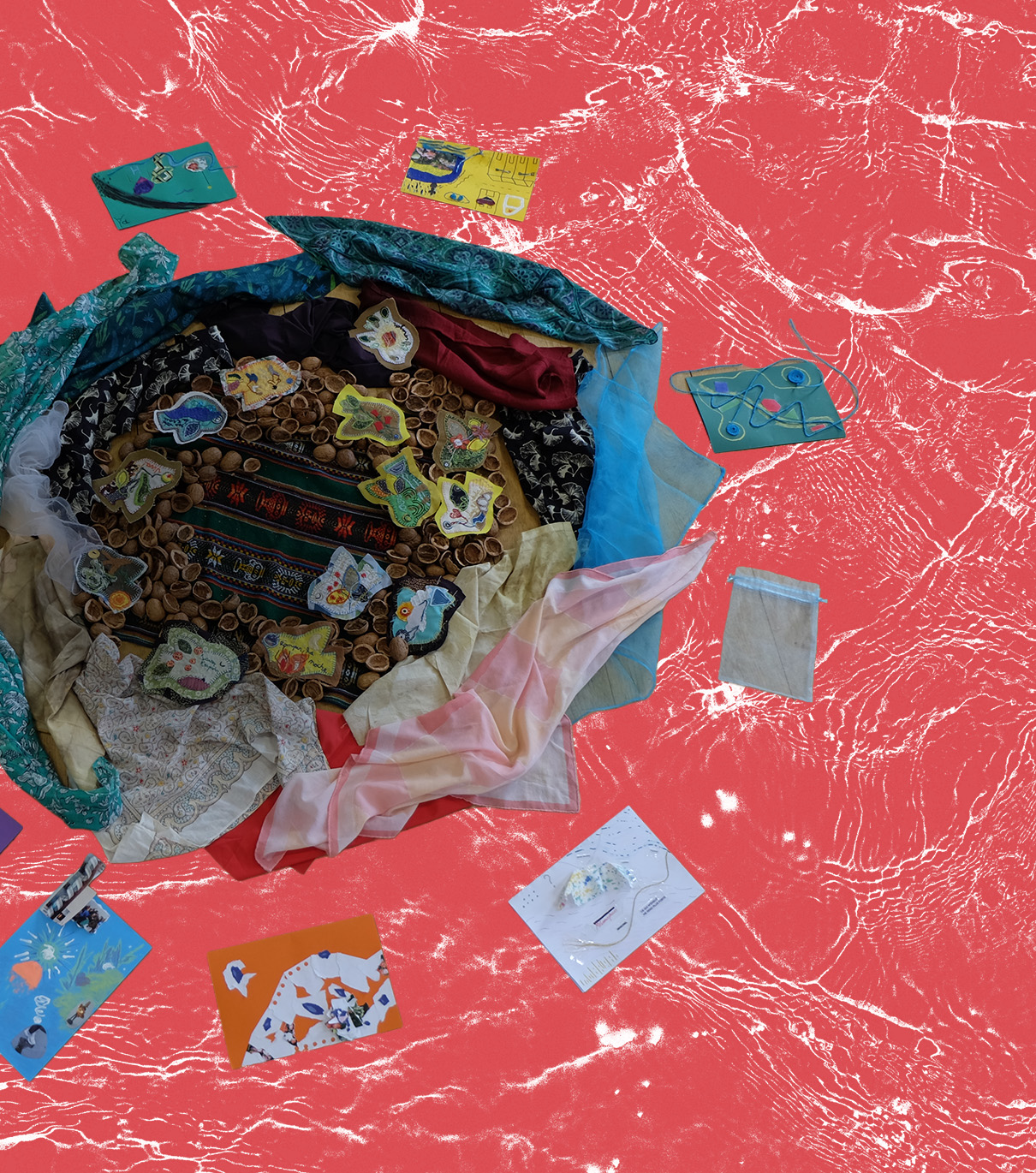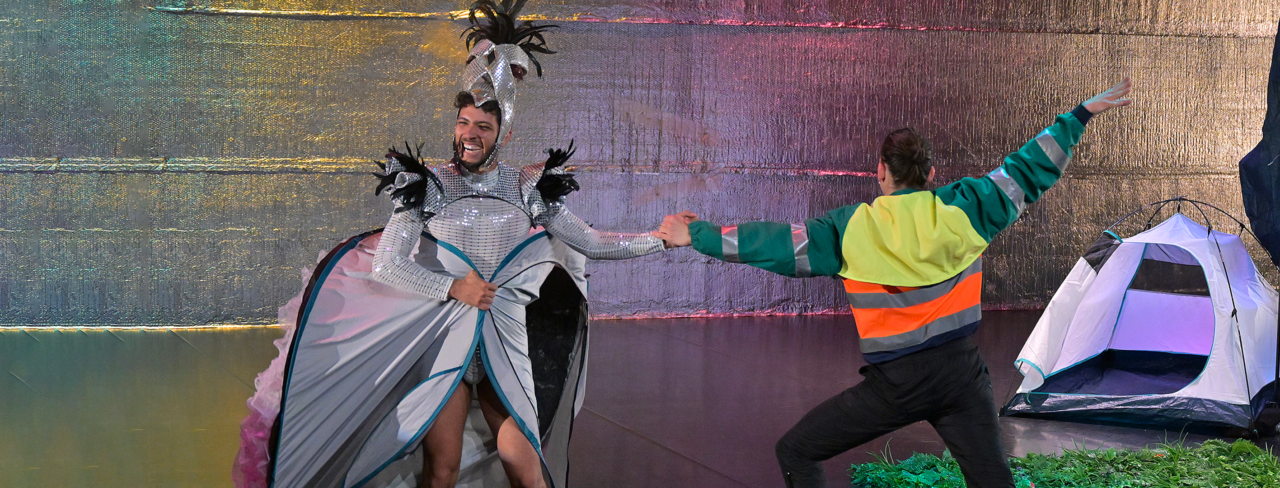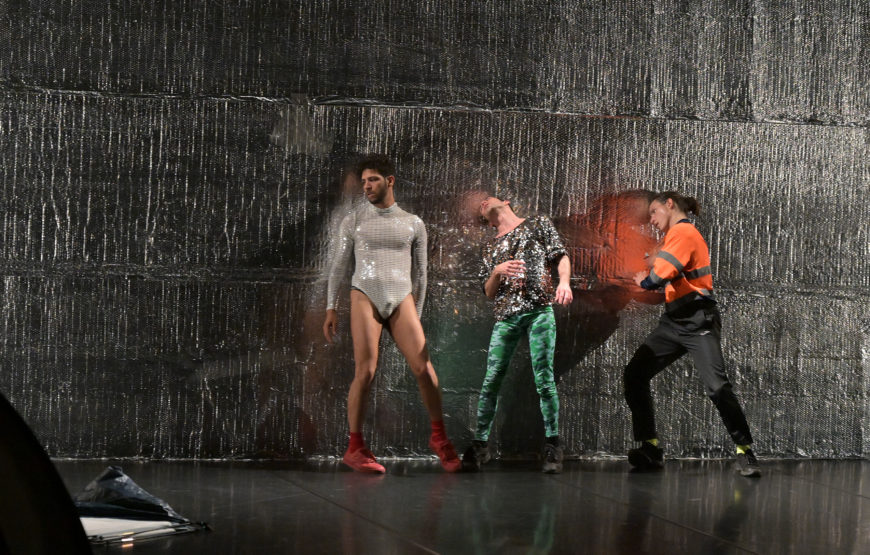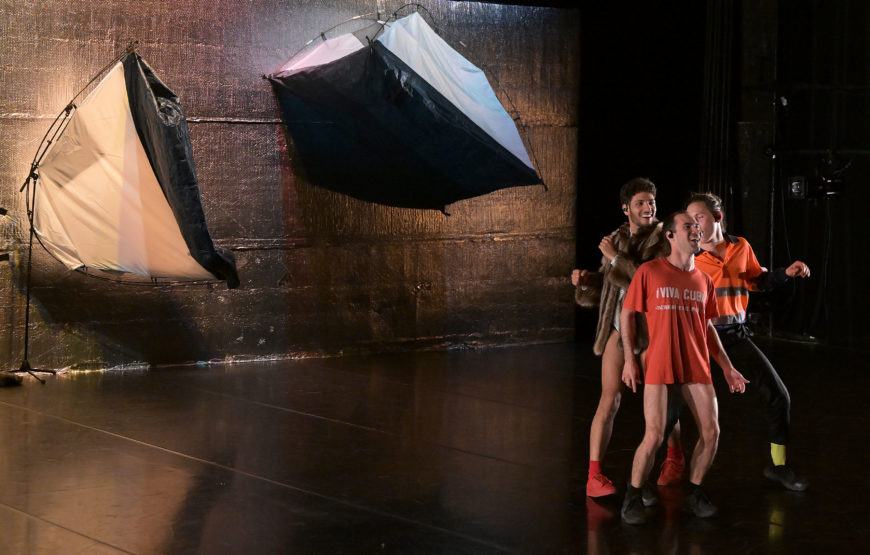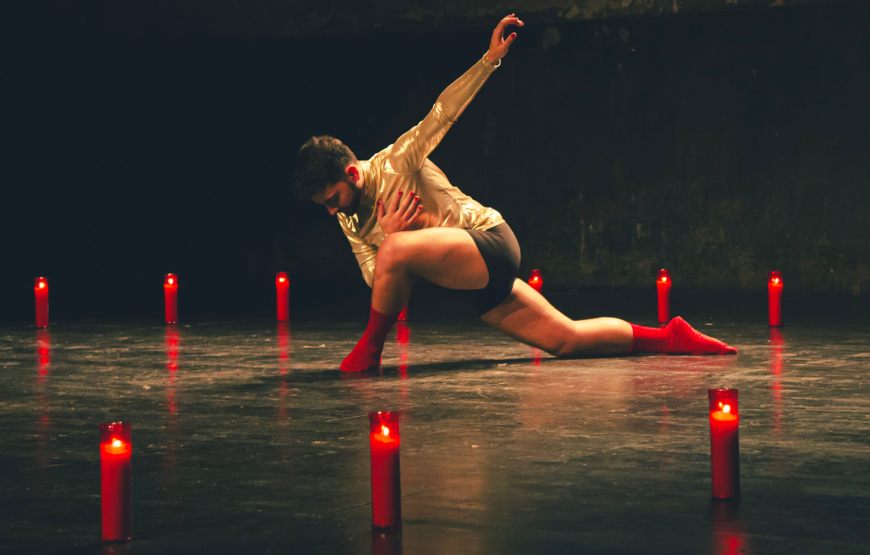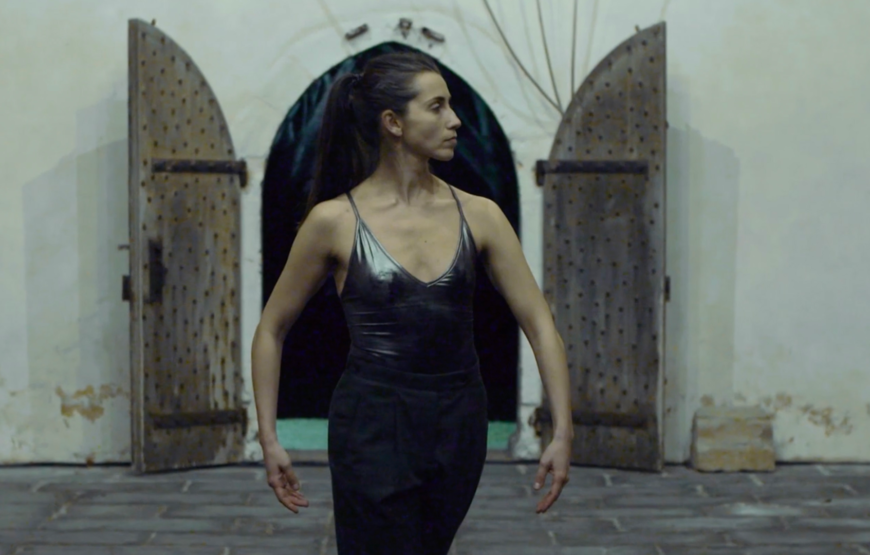Colectivo Malasangre
- Debates
- Live performance
- maison Folie Wazemmes, Lille
- 1h05
Qué bolero o En tiempos de inseguridad nacional
What does it mean to be part of a popular group today? How do movements which are for us automatic — tell us where we come from? The Colectivo Malasangre explores this, with strength, precision and sequins, the modern forms of cultural colonialism.
Lazaro Benitez, Luis Carricaburu and Ricardo Sarmiento were all born in Cuba in the 90s, between the fall of socialism and the advent of a serious economic crisis. Like many in their generation, they fled Cuba and traveled to Europe. In Qué Bolero o En tiempo de inseguridad nacional (What a Bolero or At a time of national insecurity), the three performers use movements which for them are part of popular Cuban culture: congas, Carnivals and cabarets … With a cobbled-together set which mirrors the impoverished people’s lives and the difficulties of migration, the many stories of exile and uprising, the music they chose for their piece is an iconic work of Western culture, the famous Boléro, an orchestral work by Maurice Ravel. The three artists step inside this Boléro “like a tropical hurricane”: a playful, sly peek at the “national body” which consists of layered cultural mixing.
The show will be followed by an exchange with the artistic team, led by François Frimat, philosopher and president of the festival.
- Accessibility information :
Presence of strobe lights
Presence of spoken texts in French and Spanish
Presence of written text in French
Surtitled show
High noise intensity levels
With the support of Onda – Office national de diffusion artistique
Biography(s)
The Colectivo Malasangre is a collaborative project based on dance, performance and practices strongly linked to politics and social. It is composed of three artists: Lazaro Benitez, Luis Carricaburu and Ricardo Sarmiento.
Lazaro Benitez is a performer, choreographer, researcher and dance critic. His artistic research aims to problematize the boundaries of body and gender performance, the notion of transcorporality and its representations in contemporary societies as manifestations of dissidence and a(r)tivism, notably in Cuba, Mexico, Chile, and in the Caribbean.
A graduate of the University of Arts of Havana in theoretical studies and research in dance, and of the Master 2 in Dance at the University of Paris 8, it is in 2015 that he unveils his first creation, which will allow him to enter the world of contemporary art in Havana: Roots, personal construction of my hero past, followed by Journal de campagne unpublished in 2017, then Je n’aime pas les talons in 2018. In France, in 2020, he took part in the performance in situ Bain de minuit with artist John Deneuve and DJ Olivier le Fahler. He is currently working on a mapping of contemporary Caribbean dance.
Luis Carricaburu is a dancer, performer and creator of dance performances. He has been based in Marseille since 2019.
He is interested in dance and choreography to know and create in reality a knowledge other than that of speech and images. He seeks and questions the place of the body as a battlefield, an instrument for ideology but also a place of liberation. Coming from the contemporary dance training of the University of Arts of Havana, he was dancer of the national company Danza Contemporànea of Cuba.
From 2018, the series of performances Trabajo Voluntario is the culmination of his personal work that explores the ideology of communist Cuba, its figures, its architectural remains, its epic tone, in its resonances with the dance and choreographed movement as an opportunity to apprehend with the body the complex reality and the historical situation.
He graduated in 2021 from the Master 2 of the Advanced and Itinerant Training of Street Arts and Public Spaces (FAI-AR)-University Aix-Marseille.
Ricardo Sarmiento is an author, director and performer. He has lived in Berlin since 2019.
Her practices and interests are intimately linked to migrant-dissident identity, sexuality and activism. Trained in dramaturgy at the University of Arts of Havana from which he graduated in 2018.
His most recent pieces were Diarios del miedo in 2018, and Acuario in 2019, on dolphin training and Cuban migration. His plays have been shown at the Casa de las Américas (Cuba), the Miami New MediaFestival (USA), the Casa de América in Madrid (Spain) and the Maxim Gorki Theatre etStudio Я in Berlin (Germany), among others.
In Germany, he collaborated as a playwright with Stefan Kaegi of the RiminiProtokoll Collective for the creation of Granma. Trombones by La Habana created in 2019 at ThéâtreMaxime Gorki (Berlin).
He currently holds a Master’s degree in Space Strategies at WeissenseeKunsthochschule University in Berlin.
Credits
Choreography and interpretation Lazaro Benitez, Luis Carricaburu, Ricardo Sarmiento
Stage design John Deneuve and Colectivo Malasangre
Light creation Anaïs Silmar
Music Ravel Bolero by WDR Sinfonieorchester Orquesta del Cabaret Tropicana, Esta Casa by Elena Burke, Pavane for a deceased infante by Maurice Ravel
Costumes Colectivo Malasangre and Leo Peralta
Production La Frontera – Colectivo Malasangre
Coproduction Ballet Preljocaj/Pavillon Noir – CCN d’Aix-en-Provence, Maison de la Culture d’Amiens – European Centre for Creation and Production, Glass Menagerie
Home in residence Preljocaj Ballet/Pavillon Noir – CCN d’Aix-en-Provence, Montévidéo – Centre d’art, La Zouze/Cie. Christophe Haleb, CCN Ballet du Nord, Pôle 164
Studio loan KLAP House for dance
Diffusion Lazaro Benitez


